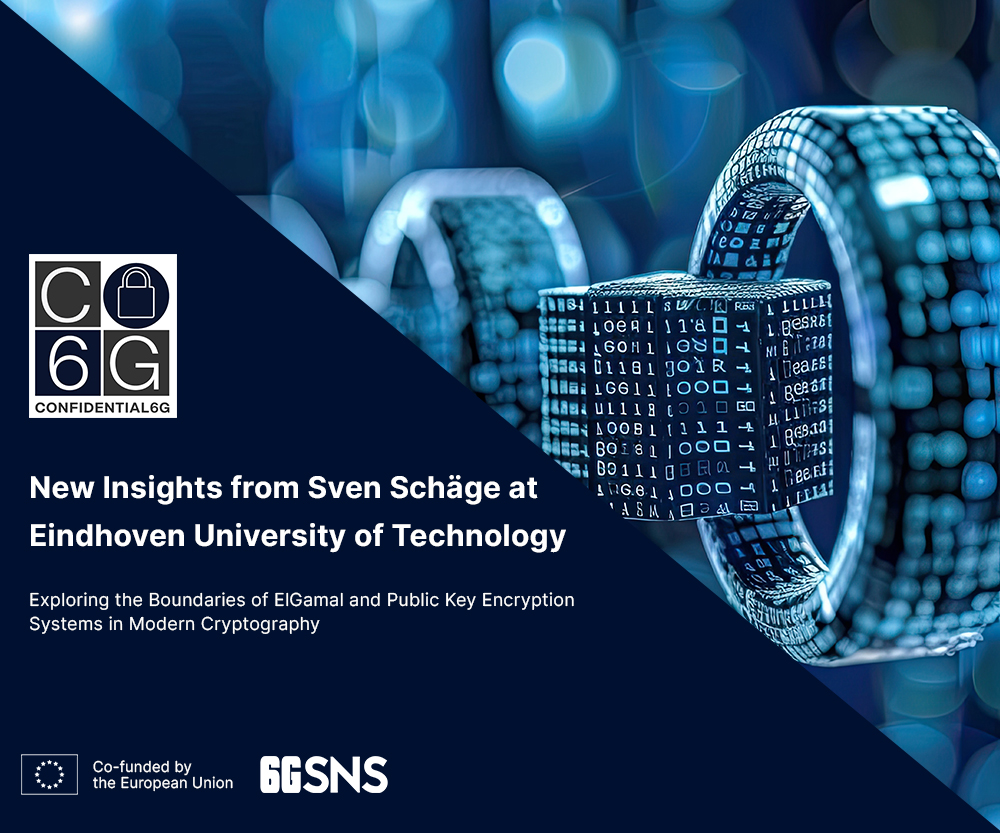New Research Highlights Limitations in ElGamal Encryption and Related Cryptographic Systems
New Research Highlights Limitations in ElGamal Encryption and Related Cryptographic Systems

Sven Schäge, a researcher from TUE and a partner in the CONFIDENTIAL6G Project, has recently published research addressing a long-standing open problem in cryptography. His work demonstrates that ElGamal encryption, a widely studied public key encryption scheme, cannot be proven secure against Chosen Ciphertext Attacks (CCA1). This result marks a significant development in the field, providing insights into the limitations of encryption systems that were previously considered to be robust.
The research hinges on a broad, meta-reduction-based impossibility result that applies to random self-reducible relations with efficiently re-randomizable witnesses. These novel techniques enable, for the first time, the establishment of impossibility results for weaker security notions, particularly where the security game’s challenger outputs fresh challenge statements at the end of the game. This approach has allowed the researchers to tackle encryption-type definitions that have eluded the cryptographic community in the past.
Moreover, the findings have broad implications across various cryptographic setups. By identifying these setups as instances of random self-reducible and re-randomizable relations, the research extends its applicability to general semi-homomorphic public key encryption (PKE) schemes and a wide class of certified homomorphic one-way bijections. Notably, the research also yields new impossibility results for the IND-CCA1 security of PKE schemes such as Paillier and Damgård–Jurik, as well as for numerous one-more inversion assumptions, including the one-more Discrete Logarithm (DLOG) and one-more RSA assumptions.
This publication not only advances the theoretical understanding of cryptographic security but also underscores the necessity of re-evaluating the security guarantees provided by widely used cryptographic systems. As the CONFIDENTIAL6G project continues to push the boundaries of secure communications, this research will play a crucial role in shaping future cryptographic protocols to ensure robust and reliable security in the evolving digital landscape.
For more details on this publication, visit this link.
